Dame Rachel de Souza is about to drive the wrong way down a one-way street. She is determined to show me one more school. “You have to see it,” she says, as we weave past a Ford Fiesta, “even if we just whizz by!”
This determination is typical of de Souza who, at 46, is one of the younger chief executives of a multi-academy trust. She’s also one of the most controversial.
As principal of two “turnaround” schools she became renowned for sending staff to drag students out of bed and introducing uniforms designed by Savile Row tailors. Despite her unorthodox ways, both schools improved their results.
Since 2012 she has been CEO of Inspiration Trust, a Norfolk-based academy chain overseeing eight schools and a teacher-training centre. Inspiration’s four trustees, besides de Souza, are wealthy businessmen. One is Theodore Agnew, a non-executive director at the Department for Education, and long-time Conservative donor.
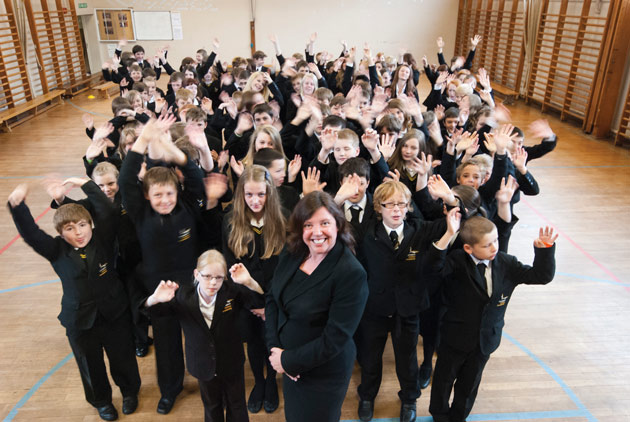
Referred to by de Souza simply as “Theo”, Agnew has clearly been crucial in the trust’s development, providing significant financial and moral support. However, his position at the education ministry raises eyebrows and in the week that I visit, de Souza is batting off newspaper allegations that she was “tipped-off” about the date of Ofsted inspections (see page 4). The investigation caused people to titter about her successes. Was it all down to back-scratching?
But de Souza’s current mingling with millionaires betrays her humble beginnings. Born in Scunthorpe in 1968, she was the middle child among three brothers. Her father was a steelworker, her mother an Austro-Hungarian refugee who looked after the four children.
Being at the front of the academies movement means that it’s very hard to be seen neutrally”
De Souza attended her local comprehensive. “I remember one of the nuns there, Sister Anna, saying to me, ‘The trouble with you, Rachel Kenny, is that you can’t cook and you don’t like cleaning up – how are you going to get a husband?’ There was a sense that we were going to be wives and mothers. I remember telling my auntie ‘I think I’d like to be a doctor,’ and she said, ‘No, no – that’s not for us’.”
De Souza’s mother and grandmother disagreed. “They would say ‘You can do whatever you want’ and I met a couple of very good teachers at sixth form that gave me a ‘puff’ to start studying.”
Inspired by an ex-Jesuit teacher, who led her A-level philosophy class, she began reading classic texts – even teaching herself Greek so that she could read Aristotle’s original prose.
“This was during the miners’ strike, which we were very aware of, and very interested in politically, but I was also interested in Hungarian and Czech literature because of my mother’s background. I couldn’t readily get my hands on it, though. It just wasn’t available in Scunthorpe.”
Unable to find the books that she craved in the local library, her teacher lent her his own collections that she would read in corners, away from family and friends. “I did think of it rather as a secret. There was a whole other side to me that had a very fun, sociable time in a working-class community. So it was all a big surprise to my friends when I got my A-levels and left.”
Aged 18 and clutching the book of her new philosopher-crush, Simone de Beauvoir, she boarded a train at Doncaster and headed to Heythrop College, a small Catholic college affiliated to the University of London, where she would study theology and philosophy.
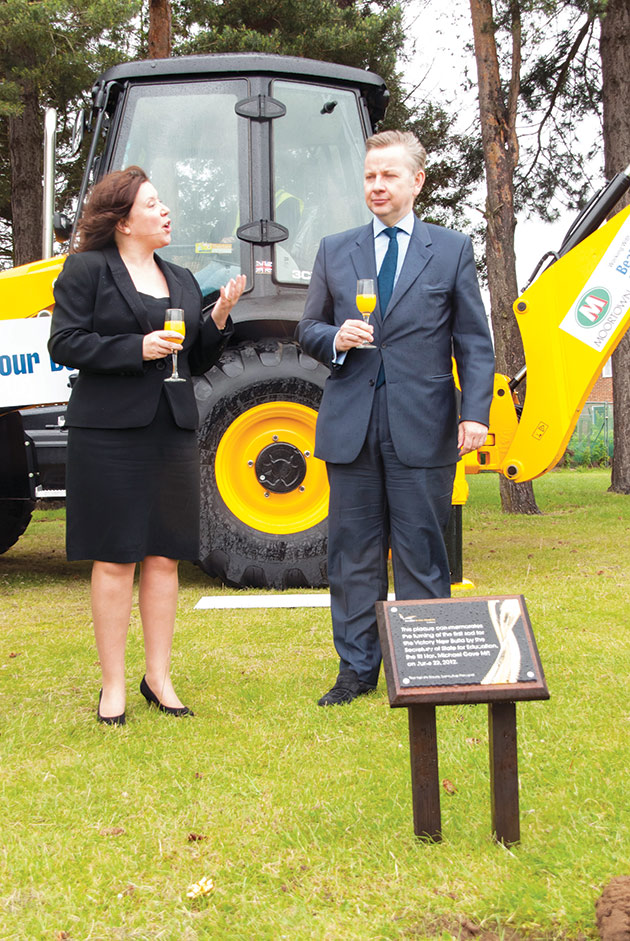
“It was a dream come true, really. I’d been in an environment where access to academic things was difficult, so I just loved it from the day I got there. I really became properly focused academically when I got to university.”
She rediscovered her love of music (she had played the violin as a child), and was fascinated by the Jesuit priests who trained at the college. “They were doing things like flying back from Guyana, going off to set up communities in the East End… very different things.”
Watching de Souza’s face as she talks about Heythrop, it is clear the experience was transformative. Animated throughout our conversation, it is as if her whole soul is aflame as she describes the joy of digging out dusty books in the caverns of the college’s library.
As ever with life though, those times could not last forever. It was 1989 and after graduation “everyone was going off to be an accountant”. De Souza tried it. She lasted five days.
After a year working in museums and office receptions, she completed a PGCE at King’s College London before moving with her husband to Oxford. They met on her first day at Heythrop and married so that she could move with him to complete his studies at Jesus College.
She taught in a “typical Oxfordshire, slightly under-performing, slightly coasting” school, and quickly became head of the religious education department, introducing GCSE and A-levels in the subject, as well as philosophy.
From Oxford she moved to London’s Tower Hamlets. At first she was overwhelmed by the school’s large, urban and largely non-white population. “I looked around and thought, ‘I don’t know whether I can do this, I really don’t, I’ve just come from Oxford…’ And then the more I went through the day, I thought, ‘No, I can, I can, and we can do it! We can do this.’ I could see the problems, there were immense problems, but it was so fascinating and really compelling.”
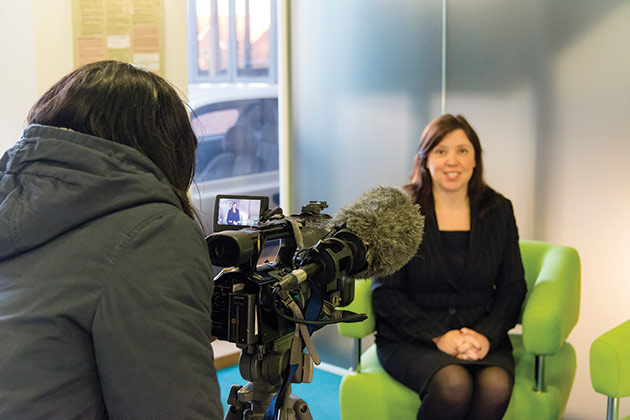
After Tower Hamlets she took a short break to look after her young son, Joe, before returning part-time as a sixth form religious studies teacher. Initially facing low take-up numbers, the department grew to more than 200 students.
Still only in her early thirties, she became deputy head at Denbigh High School in Luton. But when a nearby failing school was selected to become one of the first “turnaround academies” under a plan by the then-Labour government, de Souza’s ears pricked up. She knew it was a tough school with low results. She knew they would struggle to find a headteacher. She knew, however, that she would be perfect for the job.
“I just thought, ‘I’m going to have to run it’. I was absolutely determined. And that was it.”
At 36 and having worked as a deputy for a short time only, she was not the obvious candidate – but after hours of interview preparation, she got the job.
The school’s challenges were enormous. Twenty-five teacher vacancies, endemic low aspirations among students. But she set to work. Yes, she ordered new uniforms. Yes, she sent staff to get students out of bed. To get around the lack of permanent maths teachers in the school, she hired an Australian teacher to teach all students doing the higher paper, for two hours each night, in the school hall using a stereo mic.
It was tough work, but it made a difference. In her second year of headship, 100 per cent of students achieved five A*-Cs at GCSE. It became the stuff of legend.
From Luton she moved to be principal at an academy in Norfolk, run by Ormiston Academies Trust. After successfully turning around this second school she decided to set up a Norfolk-based academy trust.
“I started to think: is a national chain the right thing for here? The right thing for Norfolk? Resources for academies were gone, it wasn’t like the early days when money was just no object.” From this thought, Inspiration was born.
Though she clearly loves her work, it comes at a price. “When I was first a headteacher, I think definitely my family suffered, because I hadn’t learnt the art of going home and switching off. So I think I was present but not voting for a good few years.” She professes to being much better at this now – clearly separating home-time from work-time.
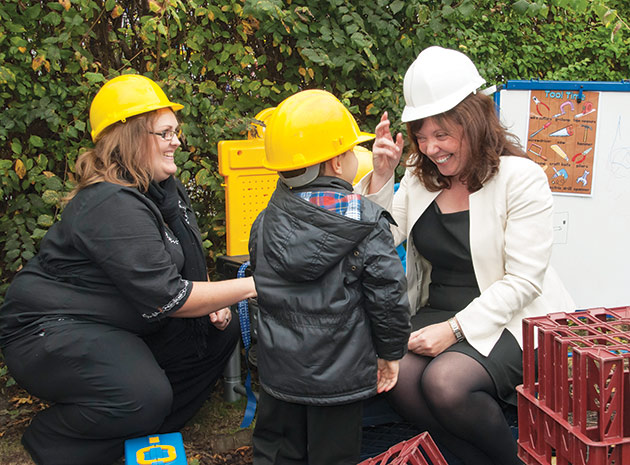
More recently she faced the problem of becoming a face known to the media: “You can quite naively go around just being you, and then you suddenly realise that actually you’re relatively well-known”. The Ofsted investigation brought this into sharp relief; it concluded as we went to press, ruling that she did not know the date of their visits – so vindicating her hard work.
Always self-deprecating during the interview, at one point she refers to the way some people see her as “that evil woman”. Does she really believe they think that?
She appears taken aback for the first time. Slowly she says: “Being at the front of the academies movement means that it’s very hard to be seen neutrally. Some people immediately think it is fantastic, and there are others who think it is ruining the educational system. But I have always had a very strong drive for standards, whether that’s for behaviour, academics, standards of professionalism, and though I hope that we all get pleasure from our work, I actually think we’re here to deliver for students.”
And if you’re left in any doubt that she means what she says, there’s a road in Norwich she’ll happily drive you the wrong way down to prove it.
What book would you take to a desert island?
Oh, goodness me! Well, I’m a trustee at The Globe, so I’d probably take the complete works of Shakespeare because I need to read them all. But if it was a book that gives me solace or one that motivates me, I would probably take my little book of poetry where Samuel Beckett’s poems are all translated into French and back
What did you want to be when you grew up?
When I was three I wanted to be a headteacher. I definitely wanted to do something to do with a school. I probably lost it as a teenager, but I’m somebody who has been on one path all her life
What do you normally have for breakfast?
It’s changeable. At the moment it’s probably some yoghurt and fruit with some good strong coffee
Next holiday?
Florence. I’ve never been, so I would love
to go and look at the art. I also want to go to Rome and see the opera and look at the galleries. Italy is definitely
on my “bucket list”

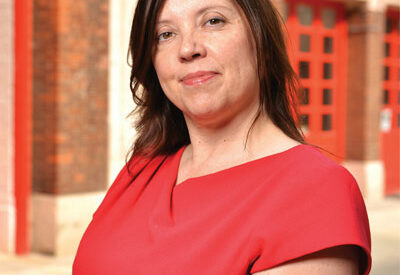




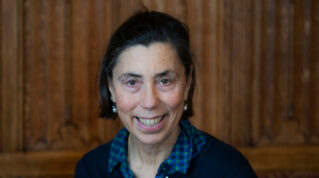
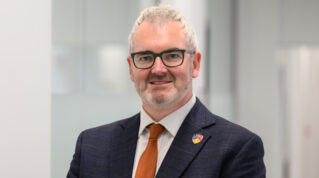
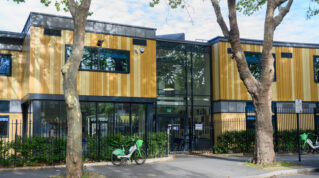

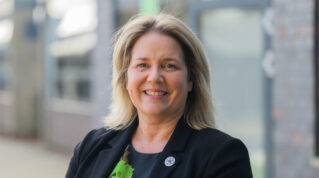


A great teacher who truly was inspirational. Taught with her heart and soul and always put her students first. Will always be remembered by her students at Luton Sixth Form College as a fantastic teacher who changed lives.
Heard her on the Radio 4 today programme and realised that she was more of a zealot than a thoughtful intelligent educated person. No doubt her proselytising has its uses in running schools.
If one was so concerned about the education system, surely one would work within it to improve standards in existing schools rather than waste money on Academies. Unfortunately these Academies are run as private enterprises. Success is measured by GCSE reslts. Competitiveness is key. Working class values are rejected as negative whilst middle classs values are lauded as the ideal. How do they expectworking class students to ‘achieve’ in this type of a school?
Also how much is going into the pockets of trustees and CEO’s
A refreshing change to have a Children’s Commissioner who actually has children.